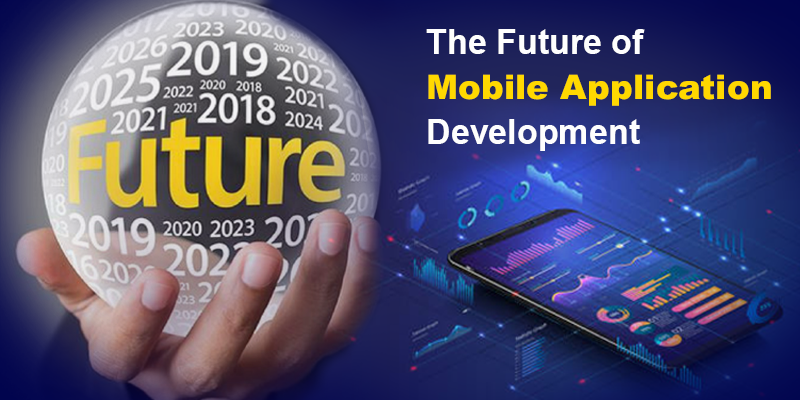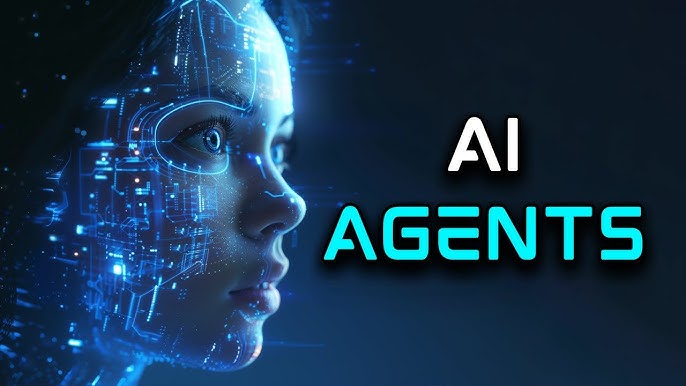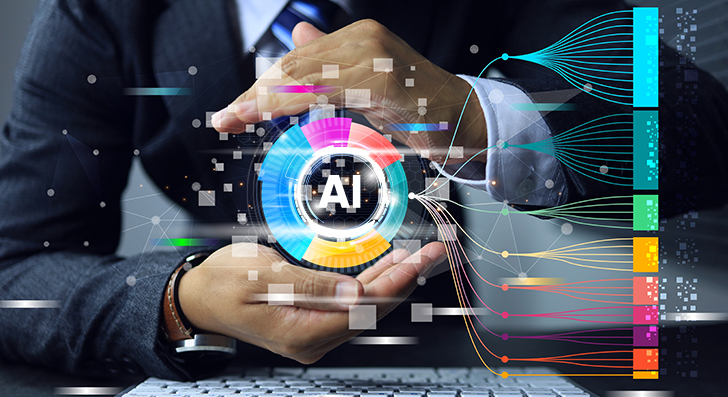Our smartphones have become an extension of ourselves, constantly buzzing with notifications and offering a universe of possibilities at our fingertips. A hidden force – development services – is shaping the future of mobile apps, crafting the tools that streamline our lives, revolutionize industries, and redefine how we interact with the world around us. This exploration will delve into the innovative ways development services are transforming the mobile app landscape, pushing the boundaries of user experience, and propelling us towards a future where apps are not just tools, but essential parts of the digital fabric.
From Craze to Cornerstone: How Development Services Are Building the Mobile Apps We Can't Live Without
The foundation of any successful app lies in a deep understanding of user needs and pain points. Development services conduct thorough user research, analyze market trends, and delve into user behavior to identify opportunities. This user-centric approach ensures that the apps they build solve real problems and offer genuine value to users.
Building for Engagement:
Development services prioritize user engagement by crafting intuitive interfaces, incorporating gamification elements, and implementing features that encourage consistent interaction. They understand the importance of keeping users hooked, fostering a sense of loyalty and encouraging them to return for more.
Innovation is Key:
The mobile app landscape is constantly evolving. Development services stay ahead of the curve by embracing cutting-edge technologies like artificial intelligence (AI), machine learning (ML), and blockchain. These technologies allow for features like personalized recommendations, predictive analytics, and secure transactions, all of which contribute to a more enriching and secure user experience.
Security and Privacy First:
Development services prioritize robust security measures to protect user data and ensure a safe digital environment. Transparency in data collection and usage practices further builds trust with users, fostering a sense of security and encouraging them to confidently utilize the apps.
Beyond the Initial Download:
The true magic of an app unfolds after the initial download. Development services understand the importance of ongoing maintenance and updates. They continuously refine the app based on user feedback, address bugs, and implement new features to maintain user interest and ensure the app remains relevant in a fast-paced digital world.
Building Ecosystems, Not Just Apps:
Development services recognize that successful apps often exist within a broader ecosystem. They may create integrations with other platforms and services, allowing users to seamlessly switch between apps and access information from various sources. This interconnectedness fosters a more holistic user experience and enhances the overall value proposition of the app.
From Craze to Cornerstone: How Development Services Are Building the Mobile Apps We Can't Live Without
From Novelty to Necessity: Understanding the User Journey
The foundation of any successful app lies in a deep understanding of the user's needs and pain points. Development services don't just throw features at a wall and hope something sticks. They conduct thorough user research, analyze market trends, and delve into user behavior to identify genuine opportunities. This user-centric approach ensures that the apps they build are more than just shiny distractions – they solve real problems and offer tangible value to users. Imagine a world before ride-hailing apps. Hailing a taxi could be a frustrating and time-consuming ordeal. Development services identified this pain point and built apps that streamlined the process, offering users convenience, transparency, and a sense of control.
The Art of Engagement: Keeping Users Hooked
Development services understand that user engagement is key to an app's success. They prioritize user experience by crafting intuitive interfaces that are easy to navigate, incorporating gamification elements like badges and leaderboards to keep users motivated, and implementing features that encourage consistent interaction. Think about the way a fitness tracker might reward you with virtual badges for reaching daily step goals, or how a food delivery app personalizes recommendations based on your past orders. These features not only enhance the core functionality of the app but also foster a sense of loyalty and encourage users to return for more.
Innovation as the Engine: Embracing Cutting-Edge Technologies
The mobile app landscape is a dynamic and ever-evolving ecosystem. Development services stay ahead of the curve by embracing cutting-edge technologies like artificial intelligence (AI), machine learning (ML), and blockchain. Imagine a world where your food delivery app uses AI to predict your cravings based on past orders and weather patterns, or a fitness tracker that leverages ML to personalize workout plans based on your fitness level and goals. These technologies allow for features like personalized recommendations, predictive analytics, and secure transactions, all of which contribute to a more enriching, efficient, and secure user experience.
Building Trust: Security and Privacy at the Forefront
As we rely more heavily on mobile apps for everything from banking to healthcare, security and privacy become paramount concerns. Development services prioritize robust security measures to protect user data and ensure a safe digital environment. They implement secure authentication protocols, encrypt sensitive information, and adhere to stringent data privacy regulations. Transparency in data collection and usage practices further builds trust with users. Knowing that their information is protected allows users to confidently utilize the apps and reap the full benefits they offer.
Beyond the Download: The Importance of Continuous Improvement
Development services understand that users have evolving needs and expectations. They prioritize ongoing maintenance and updates. This involves continuously refining the app based on user feedback, addressing bugs and glitches promptly, and implementing new features to maintain user interest and ensure the app remains relevant in a fast-paced digital world. Think about how a ride-hailing app might constantly update its platform to include new features like carpool options or real-time traffic updates. These ongoing improvements ensure a smooth and efficient user experience, keeping users engaged and loyal to the app.
Building Ecosystems, Not Just Apps: Fostering Interconnectivity
Development services recognize that successful apps often exist within a broader ecosystem. They may create integrations with other platforms and services, allowing users to seamlessly switch between apps and access information from various sources. Imagine a scenario where your fitness tracker syncs with your food delivery app, tailoring meal recommendations based on your daily activity levels. This interconnectedness fosters a more holistic user experience and enhances the overall value proposition of the app.
The Apps That Think for Themselves: How AI-Powered Development Services Are Revolutionizing Mobile
From Static Tools to Intelligent Companions: The Rise of AI-Powered Apps
Mobile apps have served as functional tools, helping us navigate unfamiliar cities, order food, or stay connected with loved ones. But with the integration of AI, apps are evolving into something entirely new: intelligent companions that understand our habits, preferences, and even predict our next move.
This transformation is being driven by development services that are incorporating cutting-edge AI technologies like machine learning and natural language processing (NLP) into the app development process. Machine learning algorithms allow apps to analyze vast amounts of user data, identify patterns, and continuously learn and adapt. NLP enables apps to understand and respond to natural language, fostering more intuitive and human-like interactions.
The Power of Prediction: Personalization on Autopilot
One of the most significant impacts of AI-powered development services is the rise of hyper-personalized apps. Imagine a news app that curates articles based on your reading history and interests, a fitness tracker that suggests workout routines tailored to your current fitness level, or a shopping app that recommends products you'll genuinely love before you even realize you need them.
Development services are leveraging AI to create these personalized experiences. Machine learning algorithms analyze user data such as past purchases, browsing history, and location data to identify individual preferences. This allows apps to anticipate user needs and proactively suggest relevant content, services, and products. This level of personalization fosters a sense of connection with the app, making it feel less like a tool and more like an intelligent assistant that understands you on a deeper level.
Beyond Predictions: AI-Powered Decision Making
The capabilities of AI extend beyond just personalization. Development services are exploring ways to integrate AI into decision-making processes within apps. Imagine a travel app that automatically books your flight and hotel based on your pre-set preferences when a sudden sale arises, or a finance app that intelligently allocates your budget based on your spending habits and financial goals.
These AI-powered features take the guesswork out of using apps and allow them to act as intelligent assistants, streamlining daily tasks and freeing us from making mundane decisions. This not only enhances convenience but also empowers users by providing data-driven insights and recommendations that can improve decision-making across various aspects of life.
Learning from Every Interaction: The Continuous Evolution of AI-Powered Apps
One of the most exciting aspects of AI-powered apps is their ability to continuously learn and evolve. Development services are building apps that leverage machine learning to analyze user interactions and feedback in real-time. This allows the app to constantly refine its algorithms, personalize experiences further, and improve its ability to anticipate user needs.
Imagine an AI-powered language learning app that adjusts its difficulty level based on your performance, or a music streaming service that curates playlists that evolve with your changing tastes. These constantly learning apps become more intelligent and intuitive with each interaction, offering a truly dynamic and personalized user experience.
The Future of Mobile Apps: A Collaborative Dance Between AI and Users
The integration of AI into mobile app development is still in its early stages, but the potential is vast. As development services continue to refine their AI capabilities and explore new possibilities, we can expect even more transformative app experiences. However, it's important to remember that AI is a tool, and the future of mobile apps will depend on a collaborative dance between AI and users.
Development services need to ensure that AI-powered apps are built with ethical considerations in mind, prioritizing user privacy and ensuring that AI decision-making remains transparent and unbiased. Ultimately, the goal is not to create apps that replace human decision-making but to empower users with intelligent companions that anticipate their needs, streamline tasks, and enhance their overall mobile experience.
Folding the Future: How Development Services Are Designing Apps for Flexible Displays
A New Canvas: The Challenges and Opportunities of Foldables
Flexible displays present both exciting possibilities and unique challenges for development services. The larger screen real estate of an unfolded phone allows for immersive experiences previously unimaginable on a traditional smartphone. Imagine editing photos on a tablet-sized screen, reading ebooks with a more natural book-like layout, or seamlessly multitasking across multiple apps simultaneously. However, this larger canvas also necessitates a rethink of user interface (UI) design principles. Development services need to ensure apps can adapt to both the unfolded and folded states of the phone. This might involve creating layouts that can resize seamlessly, or designing interfaces specifically for single-handed use when the phone is folded.
Optimizing for Different Folds: Beyond the Simple Hinge
Not all foldable phones are created equal. Development services need to consider the various folding mechanisms – inward folding, outward folding, and even multi-fold designs. Each fold type presents unique opportunities and challenges. Imagine an app designed specifically for the "tent mode" of a certain foldable phone, allowing for hands-free video conferencing or media consumption. Development services are at the forefront of exploring these possibilities, tailoring app experiences to the specific functionalities of each foldable device.
Beyond the Screen: Reimagining App Interactions
The foldable revolution isn't just about the screen. These devices often come equipped with additional features like multi-touch sensors on the back of the display or even built-in styluses. Development services are exploring how to integrate these features into the app experience. Imagine a note-taking app that utilizes the stylus for a more natural writing experience when the phone is folded, or a photo editing app that leverages multi-touch gestures on the back of the phone for additional control. By harnessing these unique functionalities, development services can create intuitive and innovative user interactions that go beyond the traditional touch screen experience.
Continuity is Key: Ensuring a Seamless User Experience
One of the key considerations for development services is ensuring a seamless user experience regardless of the phone's form factor. Imagine transitioning from reading an article on the unfolded phone to continuing on the same article when the phone is folded in half. Development services are working on solutions for app continuity, allowing users to pick up exactly where they left off when switching between the folded and unfolded states.
A Collaborative Effort: App Developers, Hardware Manufacturers, and the Future of Foldables
The success of foldable apps hinges on a collaborative effort between development services, hardware manufacturers, and software developers. Development services need access to early prototypes and detailed specifications to design apps that truly leverage the capabilities of these new devices. Hardware manufacturers need to consider the software ecosystem when designing future foldables, ensuring compatibility and smooth integration with existing and upcoming apps.
A Glimpse into the Future: A World of Possibilities Awaits
The development of apps for foldable phones is still in its nascent stages, but the potential is boundless. Development services are the pioneers, shaping the future of mobile interaction in this exciting new era. As technology advances and collaboration deepens, we can expect even more innovative app experiences that not only adapt to foldable displays but also redefine how we interact with information and entertainment on the go. The future of mobile is flexible, and development services are the architects folding it into reality.
Voice Revolution: How Development Services Are Making Mobile Apps Conversational
The way we interact with our smartphones is on the verge of a significant transformation. We're moving away from the traditional tap-and-type interfaces towards a more natural and intuitive approach: voice. This "voice revolution" is reshaping how we use mobile apps, and development services are at the forefront, crafting this new wave of conversational mobile apps.
Unmatched Convenience: Voice interfaces offer hands-free operation, perfect for situations where tapping or typing is impractical (driving, working out, cooking). They also open doors for users with physical limitations who might struggle with traditional touchscreens.
Accuracy and Speed: Voice recognition technology has become remarkably accurate, allowing for natural conversations and efficient task completion. Imagine quickly setting reminders, making calls, or controlling your smart home devices all through spoken commands.
Enhanced User Experience: Conversational interfaces can feel more engaging and user-friendly than traditional menus and buttons. Imagine having a virtual assistant built into your app, guiding you through tasks and answering your questions in a way that feels more like a conversation with a friend.
Evolving User Preferences: Consumers are increasingly comfortable interacting with voice assistants like Siri and Alexa on a daily basis. This comfort level translates to a growing expectation of similar voice capabilities within the mobile apps they use.
Development services play a crucial role in bringing these voice-powered apps to life. Their expertise falls into several key areas:
Speech Recognition Integration: Developers need to integrate Speech Recognition APIs, which act as translators, converting spoken language into text that the app can understand. Different APIs cater to various languages and may require specific integration approaches.
Natural Language Processing (NLP) Techniques: NLP allows apps to interpret the meaning behind spoken words. Developers use NLP to train the app to understand user intent, respond appropriately, and even adapt to different conversational styles.
Conversational UI/UX Design: Designing a conversational interface requires a different approach than traditional UI/UX design. Developers need to consider how users will interact with the app through voice commands and responses, ensuring a smooth and intuitive experience. This includes designing clear prompts, anticipating follow-up questions, and providing informative feedback.
Backend Development: Developers need to build robust backend systems that can process user requests, access data, and perform actions based on voice commands. This ensures the app can fulfill user requests seamlessly.
Security Considerations: Voice interactions introduce new security concerns. Developers need to implement measures to protect user privacy, secure voice data, and prevent unauthorized access through voice commands. This might involve encryption techniques and secure authentication protocols.
While voice-powered apps offer exciting possibilities, there are also challenges to consider. Speech recognition accuracy can still be limited, especially with accents or background noise. Additionally, apps might struggle to understand complex language or nuanced instructions. Some features might also require a reliable internet connection, which can be a limitation. Finally, there are data privacy concerns related to how voice data is collected and stored.
The development of voice-powered mobile apps is still in its early stages, but the potential for growth is immense. As development services continue to refine their techniques and integrate new technologies, we can expect to see even more sophisticated and intuitive conversational apps emerge. The future holds possibilities like AI-powered personalization, emotional recognition in voice tones, and a seamless blend of voice interaction with touch and gestures. Conversational interfaces have the potential to revolutionize how we interact with apps in various sectors like healthcare, education, and e-commerce. The voice revolution is upon us, and development services are leading the charge in creating a new era of mobile app experiences that are more natural, engaging, and accessible for everyone.
The Blockchain Bonanza: How Development Services Are Building Secure and Decentralized Mobile Apps
Enhanced Security: Blockchain technology offers a distributed ledger system, where data is encrypted and securely stored across multiple devices. This eliminates the risk of a single point of failure and makes it nearly impossible to tamper with data, significantly improving security compared to traditional centralized systems.
Transparency and Trust: All transactions on a blockchain network are visible and verifiable by participants. This transparency fosters trust between users and eliminates the need for intermediaries, streamlining processes and potentially reducing costs.
Decentralization: Blockchain eliminates the need for a central authority to control data. This empowers users and enables peer-to-peer interactions, creating a more democratic and secure environment for mobile app functionalities.
New Opportunities: Blockchain unlocks a vast array of possibilities for mobile apps. From secure identity management and digital payments to verifiable provenance tracking and tamper-proof record keeping, blockchain opens doors for innovative features and services.
The Role of Development Services in Building Blockchain Apps
Development services play a crucial role in translating the potential of blockchain technology into functional and user-friendly mobile apps.
Blockchain Protocol Selection: Choosing the right blockchain protocol is crucial for the app's functionality and scalability. Development services need to assess the app's specific requirements and select a protocol that best suits its needs.
Smart Contract Development: Smart contracts are self-executing code stored on the blockchain. They automate agreements and transactions between users, ensuring secure and transparent execution. Development services specialize in writing and integrating smart contracts into mobile apps.
Security Audits and Penetration Testing: Security is paramount in blockchain apps. Development services conduct thorough security audits and penetration testing to identify and eliminate vulnerabilities before the app launches.
User Interface (UI) and User Experience (UX) Design: Building a user-friendly interface is essential for mainstream adoption. Development services design intuitive interfaces that simplify complex blockchain concepts for users with varying levels of technical expertise.
Backend Development: Robust backend systems are needed to interact with the blockchain network, process data, and manage user interactions. Development services ensure seamless integration between the app's user interface and the blockchain protocol.
Benefits and Challenges of Blockchain Mobile Apps
While blockchain offers exciting possibilities, there are also challenges to consider:
- Enhanced security and data privacy for users
- Increased transparency and trust in mobile app transactions
- Decentralized operation, eliminating reliance on central authorities
- Potential for innovative features and services across various industries
- Scalability limitations of some blockchain protocols
- Complexity of blockchain development compared to traditional methods
- Regulatory uncertainty surrounding blockchain technology
The Future of Blockchain Mobile Apps
The development of blockchain mobile apps is still in its early stages, but the potential for growth is immense. As development services refine their expertise and tackle current challenges, we can expect to see:
Improved Scalability: Advancements in blockchain protocols will address scalability limitations, enabling wider adoption for mobile apps.
Simplified Development Tools: User-friendly development tools and frameworks will emerge, making blockchain development more accessible to a broader range of developers.
Regulatory Clarity: As governments and regulatory bodies gain a better understanding of blockchain technology, regulations will evolve to provide a clearer framework for blockchain-based mobile apps.
Mass Adoption: With improved user interfaces, increased security awareness, and growing familiarity with blockchain concepts, we can expect wider mainstream adoption of blockchain mobile apps across various sectors.
Read more :
Building the Perfect App for Startups: A Guide to Mobile App Development Services
Taking Your Enterprise Mobile: How App Development Services Can Empower Your Business
No-Code vs. Full Development: Choosing the Right Mobile App Development Service for You
Struggling to Reach Your Target Audience? A Mobile App Development Company Can Help
Feeling Overwhelmed by the App Development Process? Let a Service Provider Be Your Guide
Turning Your App Idea into Reality: How Mobile Development Services Bridge the Gap
For more information contact : support@mindnotix.com
Mindnotix Software Development Company


 AI-Taxi App
AI-Taxi App AI-Food App
AI-Food App AI-Property Mgmt App
AI-Property Mgmt App AI-CRM
AI-CRM AI-Fantasy App
AI-Fantasy App
 Web Development
Web Development App Development
App Development Business & Startup
Business & Startup Hire Developer
Hire Developer
 Digital Marketing
Digital Marketing Lead-generation
Lead-generation Creative Agency
Creative Agency Branding Agency
Branding Agency Augmented Reality
Augmented Reality Virtual Reality
Virtual Reality Internet of Things
Internet of Things Artificial Intelligence
Artificial Intelligence Blockchain
Blockchain Chatbot
Chatbot



